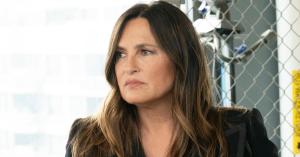The family of Kelly Catlin, the Olympic cyclist who died by suicide last week months after suffering a concussion, has donated her brain for research.

The family told The Washington Post that they donated the 23-year-old’s brain to Veterans Affairs-Boston University-Concussion Legacy Foundation Brain Bank in an effort to determine how a concussion resulted in the mental and behavioral changes that they believe ultimately led to the athlete’s death.
Videos by PopCulture.com
Catlin’s father, Mark Catlin, told the paper that they’re hopeful an examination on her brain will provide them with answers.
“Our family decided to have a neuropathologic examination performed on Kelly’s brain to investigate any possible damage caused by her recent head injury and seek explanations for recent neurologic symptoms,” Mark said.
The Bank confirmed the donation and told PEOPLE that it received the brain on Tuesday.
Catlin, who helped the U.S. women’s pursuit team win the silver medal at the 2016 Rio de Janeiro Games, died on Friday in her Stanford University dorm room in California. Catlin’s sister, Christine Catlin, told PEOPLE that Catlin’s roommate found her and contacted authorities.
Catlin’s official cause of death was asphyxiation, according to the Santa Clara County Medical Examiner’s office, and the manner of her death was suicide.
Catlin, a competitive cyclist who rose to prominence as a member of the U.S. national team and the Rally UHC Pro Cycling Team, was pursuing a graduate degree in computational mathematics at Stanford at the time of her death.
Christine said she and her family knew Catlin was struggling with her mental health after she suffered a concussion during a cycling race in December 2018. She began having vision problems, severe headaches and was unable to complete workouts with her cycling team, Mark said earlier this week.
“My wife and I talked to her weekly on the phone and she started to express apathy about cycling, which she’d never done before,” Mark said. “She had a lack of enthusiasm for the Olympic team, for training, for everything in life. We were concerned. She ran herself down. The concussion had a profound impact on her. She had these mental issues and she started to feel trapped.”
After a failed attempt to die by suicide in January, Catlin underwent physical and mental health treatment for about two weeks before returning to school.
Mark and Christine said they called Catlin constantly and that her mental health seemed to be improving.
Catlin, who was one of a set of triplets, left behind her sister, Christine, and brother, Colin, and her parents, Mark, 66, and Carolyn Emory, 67.








